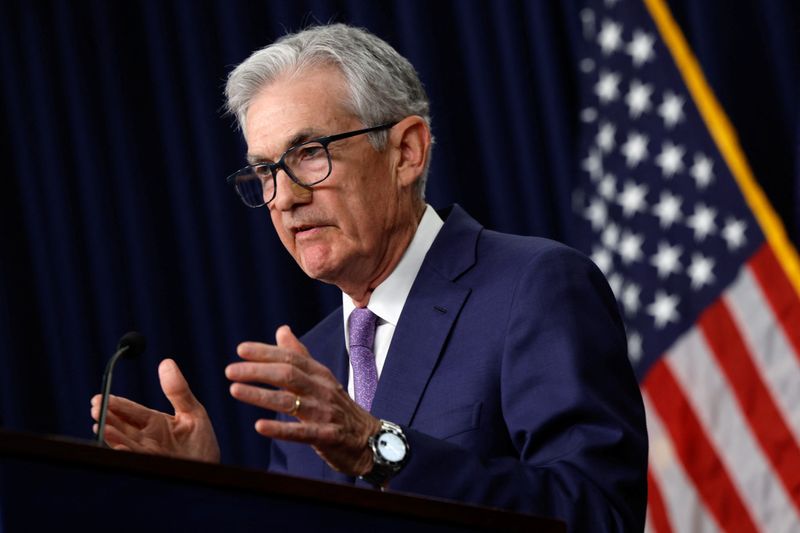
Earlier this month, 39-year-old Salvadoran President Nayib Bukele made worldwide headlines when he announced — and shortly passed — a invoice to make Bitcoin authorized tender in El Salvador, making it the primary nation to take action. This is unlikely to have a huge fast affect on the financial system of El Salvador, the place solely roughly 30% of individuals have financial institution accounts and fewer than 51% have entry to the web, which is necessary to make use of Bitcoin. However, the precedent that it units is noteworthy, and deserves debate on whether or not different international locations ought to comply with swimsuit.
One of essentially the most outstanding arguments in favor of Bitcoin is that, allegedly, it’s resistant to inflation in a manner that fiat currencies just like the U.S. greenback are usually not. Jack Mallers, CEO of Strike, a fee platform that has partnered with the Salvadoran authorities to implement Bitcoin within the nation, said, “Holding bitcoin offers a approach to shield creating economies from potential shocks of fiat forex inflation.” El Salvador itself has not suffered immense inflation in latest a long time, largely attributable to the truth that it uses the usdollar (a selection that has its personal flaws). However, in different Latin American international locations — like Venezuela or, to a lesser extent, Argentina — which have skilled inflation, a forex that’s supposedly resistant to inflation would appear enticing.
The downside is that Bitcoin is way from resistant to wild fluctuations in worth. Indeed, throughout the last few months alone, Bitcoin has gone from a peak worth of $63,347 on April 15 to $32,404 on June 22. Most of that loss in worth occurred in simply two weeks. Were that fee of inflation to proceed for a yr, that may be a 5,569% annual inflation fee, roughly equal to Venezuela’s projected inflation fee for 2021. Could Bitcoin rebound from the place it’s now? Certainly. Bitcoin’s present worth is roughly equal to the place it was on the finish of January 2021, and clearly, it has elevated considerably from there. But that’s exactly the issue. Bitcoin is just not a steady forex; it’s liable to the identical excessive oscillations in worth that some fiat currencies are, and sometimes extra so.
Worse but, these variations will be — and have been — due to coverage modifications in only one nation. Bitcoin’s worth fell by almost 50% inside a week in December 2017, shortly earlier than South Korea, a nation with 51 million folks, banned new buying and selling accounts. More not too long ago, China’s crackdown on cryptocurrencies wiped away $400 billion from the worldwide cryptocurrency market within the three days after June 18, together with a 16% drop within the worth of Bitcoin. These incidents present how, despite the fact that Bitcoin is a decentralized forex, governments all over the world can meddle with its worth. So until the world’s Bitcoin-using international locations get collectively to determine guidelines for the way international locations can legislate — which, given how nicely the world was in a position to cooperate to struggle COVID-19, I wouldn’t rely on — this worldwide forex will endlessly be inclined to massive shocks due to national insurance policies.
This is to not low cost the intense quantity of electrical energy that mining Bitcoin requires, which is extremely vital as the specter of local weather apocalypse looms nearer and nearer. In 2020, the Bitcoin community, which incorporates mining and transactions, used up 58 terawatt-hours of electrical energy, roughly equal to the annual electrical energy usage of Switzerland. Bitcoin’s proponents often have two rebuttals to this statistic: fiat forex also makes use of a lot of electrical energy in its creation, and that almost all of Bitcoin mining runs on renewable vitality. While each of those are technically true, neither is definitely an efficient argument in Bitcoin’s favor.
Paper forex manufacturing and banking use roughly 100 terawatt-hours of electrical energy yearly, about 80% greater than Bitcoin mining. However, this doesn’t consider the precise financial worth of what’s produced with that electrical energy. In 2020, roughly 420,000 Bitcoin have been mined, price roughly $14 billion at current worth. By distinction, roughly 6.2 billion U.S. greenback notes have been minted in 2020, for a worth of $185.7 billion. And that’s only for the U.S. greenback. So, whereas manufacturing and dealing with of fiat forex use double the electrical energy of bitcoin, it creates a minimum of 13 occasions the financial worth. As for the truth that a majority — 74.1% — of Bitcoin manufacturing and dealing with is completed utilizing renewable vitality, all which means is that yearly almost 43 terawatt-hours of electrical energy, roughly the annual electrical energy consumption of Qatar, is being diverted from different actions to supply and deal with a extremely unstable forex. And whereas the variety of Bitcoin produced yearly is expected to lower sooner or later attributable to limits on the overall variety of Bitcoin that may ever be produced that have been imposed when Bitcoin was invented, these limits are hotly debated and are more likely to be strained ought to Bitcoin change into authorized tender in international locations all over the world.
Bitcoin is a wildly unstable forex that consumes the electrical energy eating regimen of a medium-sized nation yearly to supply a fraction of the worth that national mints do. If Bitcoin have been made a national authorized tender, it might jeopardize the monetary stability of any nation that adopts it as a forex. Any nation that makes it their reserve forex — as Bukele appears to need to do in El Salvador — dangers the worth of its reserves. And any wider utilization of Bitcoin dangers reversing even the modest beneficial properties we’ve made in opposition to local weather change. I’d be cautious of any authorities that tries to present it authorized backing, be it in El Salvador or New York City.
Brandon Cowit is an Opinion Columnist and will be reached at [email protected].













